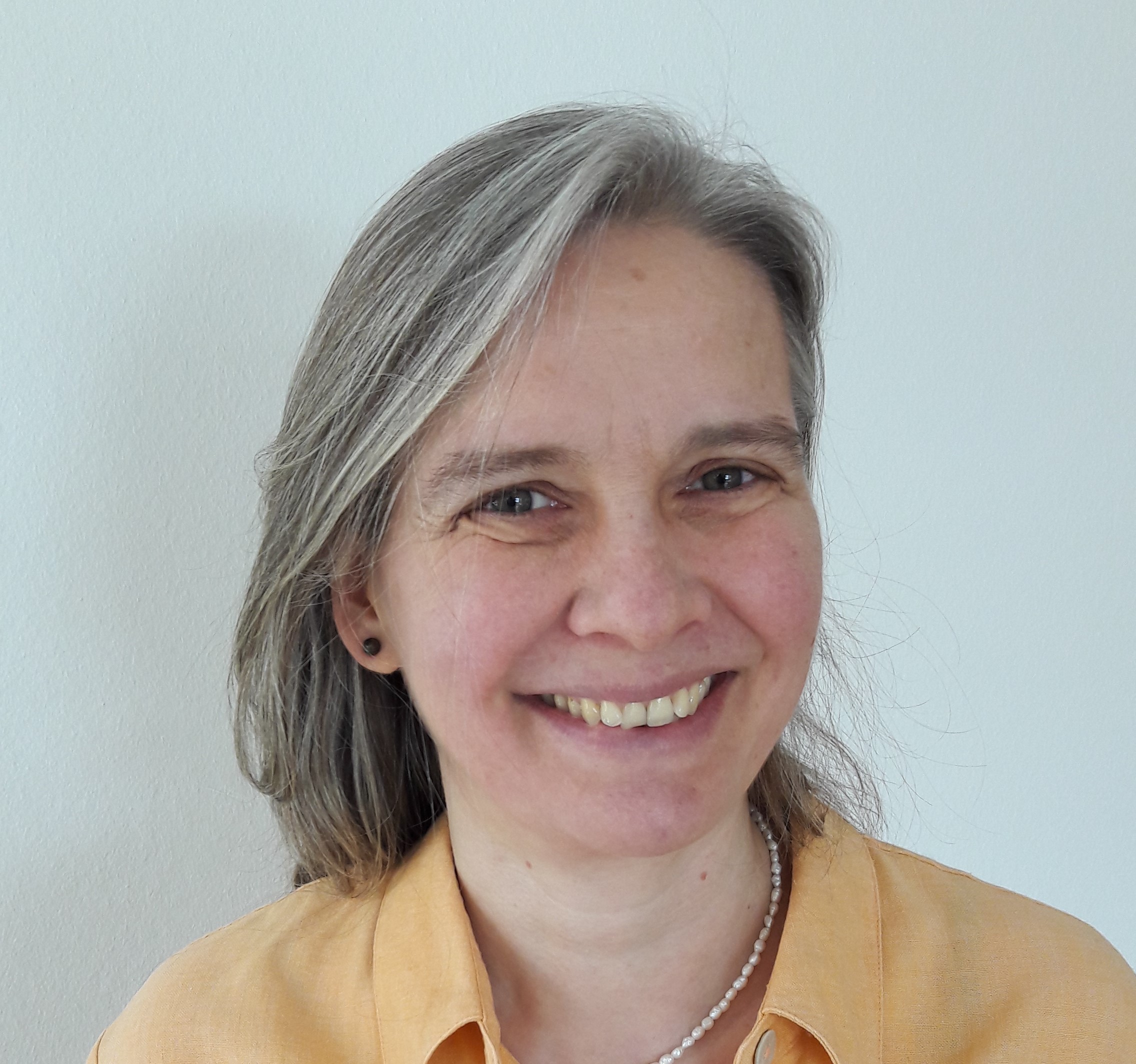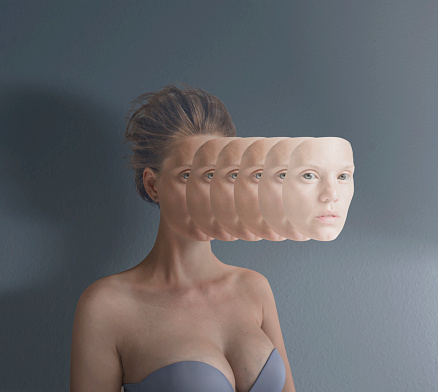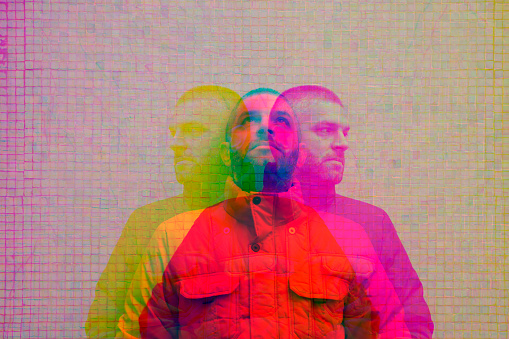
SHAUMBRA MONTHLY: What is your professional history?
SILKE: I studied psychology in university, although I never planned to work with people because I was so afraid of them. Therefore, after the year two exam I had to specialize, and chose cognitive psychology rather than clinical psychology. I continued with the studies and did my PhD in perception and action control. Then I went into theoretical research, rather than applied research, but after a few years I realized I was very, very unhappy.
Sitting on the most beautiful beach in the world, I was crying and did not understand why. It was the year 2000, which was a turning point, because until that point I believed only in things I could touch. My mother believed in the spiritual world, and I thought she was crazy. Then, over the next four years, my whole world flipped. Around 2002 I heard of Crimson Circle and started reading. I began doing mindfulness or conscious breathing, however you want to call it, and in 2004 the full transformation to Shaumbra was done. It had flipped really fast.
I realized I did not want to continue with research because I did not find any meaning in it. And, because conscious breathing worked for me, I decided to switch to being a coach and teach conscious breathing. In the beginning I did not know what to call myself or my services, but now I have the name “Mindfulness Teacher,” although mind-full-ness is a kind of a joke because I don’t teach mindfulness; I teach awareness and compassion. My real profession is being a teacher of awareness and self-compassion for muggles – if I can use that term – and for people in the process of waking up. So, I see the full range of “My back hurts, I want to leave my job, I’m unhappy” to “What are these weird symptoms that are happening to me?”
I work now as a practicing psychologist. I’m not a therapist but I counsel and combine positive psychology with “mindfulness” and conscious breathing. And, since attending SES (Sexual Energies School) and Aspectology, I use these two as the foundation for my work. In fact, psychology would not be as effective on its own as it is combined with SES and Aspectology. SES is harder for people to understand, but everyone can understand Aspectology. The concept that “I’m not one, I’m many. I have a core and I have stories I tell,” is very accessible for people.
Since 2004 I have worked as a coach and a mindfulness trainer. I work with individuals and, since 2013, for big companies also as part of the Trainer Network Potential Project.
SM: When did you take Aspectology and how did you decide to become a teacher?
SILKE: I first attended SES in 2006 in Frankfurt, and immediately decided I wanted to do the SES upcoming teacher training in Switzerland. A couple years later I took Aspectology, also in Frankfurt. I remember sitting down in the first or second row, and one of the facilitators said to me, “You don’t want to sit there.”
“Yes, I want to sit there!” “No, you don’t.” He was joking of course, but later I understood because it was a hell of a ride, and awesome too. It was very clear that I also wanted to be a teacher for Aspectology, and since then I have given a number of SES and Aspectology classes. They are very small, usually 1-4 people in a class, but many come to me and say, “There’s an online training, but I prefer to do it with a teacher.” That’s something I’ve been hearing quite often the last several months.
SM: What have you noticed within yourself after going through Aspectology?
 SILKE: I think the main thing was a big aha and a big forgiving of myself. I attended it live and it was very intense, and it helped me accept and integrate a lot of the darkness. Of course, it was not integrated immediately, but something switched. There was a lot of shame and guilt for things I had done. I had remembrances of past lifetimes and being in very dark places, doing a lot of not so nice stuff, and I could finally start to forgive myself. That was the most important thing, to start forgiving myself, and then coming to terms with the darkness that was in me and understanding it, and also understanding the darkness in the world – even more than after SES – and accepting it.
SILKE: I think the main thing was a big aha and a big forgiving of myself. I attended it live and it was very intense, and it helped me accept and integrate a lot of the darkness. Of course, it was not integrated immediately, but something switched. There was a lot of shame and guilt for things I had done. I had remembrances of past lifetimes and being in very dark places, doing a lot of not so nice stuff, and I could finally start to forgive myself. That was the most important thing, to start forgiving myself, and then coming to terms with the darkness that was in me and understanding it, and also understanding the darkness in the world – even more than after SES – and accepting it.
The second thing I understood was that Aspectology was the missing part of my psychology studies. I had learned a lot – psychology is a really big field and the scientists understand a lot – but there’s something missing. And after Aspectology it was complete, as if it grounded and completed the picture, and this, of course, helped me a lot because I’m still a very mental person. I have a very big rational part that wants to understand, and after Aspectology I understood. It made perfect sense, and it gave me, together with SES, a tool to care for myself.
I had the feeling I didn’t need anyone on the outside. Perhaps it would be nice to have someone to call or even go to for coaching, but not really because I have all the tools myself. I felt free and empowered, able to do it myself. I understand the process, I can do it, I can go all the way to the gold, the finish line.
So, for me, it completed the picture. SES was already awesome, but I had the feeling that SES is more like balancing and stabilizing oneself, which is important because Aspectology can be a rough ride for a while. After my Aspectology class it really kind of opened a door. You can feel it and you have to take the time to really look at things that pop up. And they will pop up. If you take the class, things will definitely change. I think if you decide to go, you are already in the process and it is moving you along. A lot of things will come up, both during the class and afterward. For me, the second night was tough because one of the not-so-nice aspects was visiting. I knew beforehand and was kind of nervous about it, but I was not in fear. I could feel Adamus very close, like he ‘had my back’ – a very physical, bodily feeling – so I felt very safe, even though I knew beforehand it would not be a very good night. It was a great learning experience.
Since then, it’s an ongoing process. It keeps getting easier and easier, like Tobias said, less and less resistance. Things that you’re afraid of or that block you or make a lot of fuss, it gets easier. For much of my life I was in fear, and this changed with SES. I was able to get rid of my depression and anxiety with SES and with a lot of conscious breathing.
SM: Would you say Aspectology is something very practical?
SILKE: Definitely, definitely. You get a toolkit and you can do it for yourself. It’s very, very empowering, very practical, and you can start immediately. It gives you the tools to deal with your day-to-day problems because all your day-to-day problems are aspects. Every one of them! It boils it down to a simple solution, not simple in applying but simple as a concept. You understand how you work as a person, as a personality, and you can start to put yourself together with this very practical advice. Everything is an aspect. And it even helps in dealing with the outside world because all your things are aspects too, which is something else I work with.
SM: What would you say to someone who says, “Well, they talk about aspects in the Shouds. I already got the energy and understand it. Why should I spend all that money to take the class?”
 SILKE: I have a breathing group that can get very intense, and sometimes my clients go into an experience of integration without doing a class. Sometimes it just happens, and it works. They can do it. But it’s a lot easier, smoother and faster if you have the background of the class, because there are experiences in Aspectology that you won’t have outside the class. You can do it on your own, but it makes integration a lot easier and a lot faster, especially with the dark aspects. I could have gone on struggling with these bad guys for years, but after Aspectology it became quite easy to let go of this thing in my past.
SILKE: I have a breathing group that can get very intense, and sometimes my clients go into an experience of integration without doing a class. Sometimes it just happens, and it works. They can do it. But it’s a lot easier, smoother and faster if you have the background of the class, because there are experiences in Aspectology that you won’t have outside the class. You can do it on your own, but it makes integration a lot easier and a lot faster, especially with the dark aspects. I could have gone on struggling with these bad guys for years, but after Aspectology it became quite easy to let go of this thing in my past.
So, if you want to make it more comfortable for yourself, if you want to make it faster and smoother, do the class. It’s worth the money because it will actually save you money by integrating the aspects that block your creativity and potentials for more money. In other words, if you want to earn more money, do Aspectology! Then do Master’s Life 4 – Ahmyo. Or do the whole series, but Ahmyo did it for me. I’m still not exactly where I want to be with respect to abundance, but I’m moving there and Aspectology plays a huge part in it. So, invest the money in yourself.
SM: Is there anything else you would like to share with Shaumbra about Aspectology?
SILKE: If you feel that you are in a very unstable position, that your life is falling apart or you’re not in a good state, do SES first. Then wait for a while, because it stirs things up. I often say SES is stabilizing and Aspectology can give you a lot of changes, so it’s better to do it when you have the feeling, “Now, I’m ready for it. And I’m fine if something stirs up my life,” because it will.
And if you take medication, please read the paragraph about that because it’s very important. (“Those who are taking anti-anxiety or anti-depression medications, known as SSRIs, within the past 18 months, are not eligible to participate in the Aspectology School.”) It’s a really good thing to heed this warning. I have one client who had a very difficult experience with aspects and he kind of lost himself. He lost his core and was lost in an aspect for quite some time and had to take medication. So please take care. It’s a class that’s very effective and the guidelines are there for a reason.
If you have any doubt, take SES first. Work with SES for some time and have a physician that can help get you off the medication, and perhaps switch to homeopathic remedies. Then do Aspectology. But if you have a feeling, “This is a good time, this draws me,” then by all means do it because it’s very helpful. It’s one of the core classes for a reason.
And, if you are in psychology, do it to complete your picture of how our psyche works. And even if you don’t believe in channeling, nonetheless Aspectology still works. The concepts that are presented can easily be seen from a positive psychology view and they are sound. So, even if you don’t believe in angels or Atlantis, that doesn’t matter because you are learning sound psychological concepts that go beyond and give you the whole picture.
Silke can be contacted through her website, silke-steininger.de, or via email.